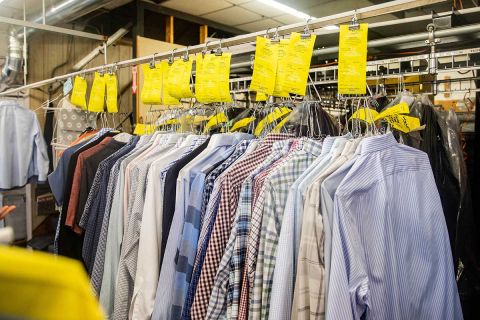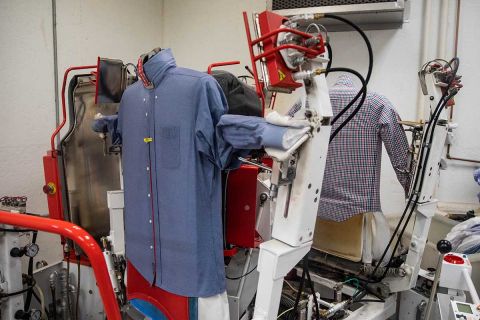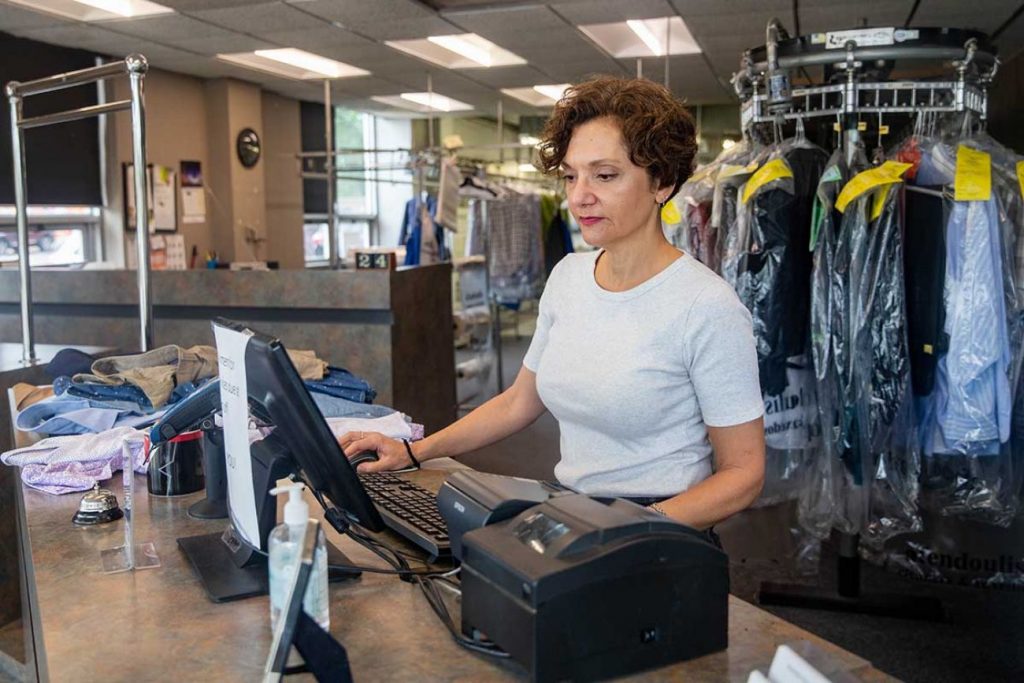“We do more dress shirts than anything else,” co-owner Becky Afendoulis Trierweiler said, recalling the days before the pandemic and 15 months of health restrictions set by the state.
But as office workers stayed home, so did their dress shirts — and most of their other clothing that once would have gone in for dry cleaning, which put Afendoulis, like many cleaners in the state, in a perilous situation.
“We depend on customers coming in the door,” Trierweiler said.

On May 24, Michigan lifted its restriction on in-person office work, and all capacity restrictions will end by July 1.
As a result, the coming weeks could be a lifeline for dry cleaners that depend on office attire — men’s and women’s shirts, pants, skirts and suits — for what Trierweiler called “my bread and butter.”
People returning to office work “means there’s hope” for her business, she said.
As businesses across the country make decisions about returning to in-person work, many recognize they may not need as much office space, signaling to landlords that vacancies could be pending. Others say that while productivity didn’t change, culture did, and they’re doubling down on returning to their offices. And hybrid work models — with workers coming into an office for a portion of their work week, and staying home for the remainder — may become common.
Caught amid those decisions are the cities and the businesses that count on the white-collar workers. In Detroit, Rocket Companies said it would start to bring its 19,000 workers back to downtown on Monday. State office workers can return to Lansing and other locations on July 12.
Returning office workers are “starting to become more noticeable… looking at traffic, parking lots and restaurants at lunch here in downtown Grand Rapids,” Andy Johnston, vice president for government affairs for the Grand Rapids Chamber of Commerce, said last week.
“I think in the first week of June, we’ll see an even more noticeable change.”
‘Nobody was going into the office’
As the pandemic descended onto Michigan in March 2020, the change at Afendoulis Cleaners & Tuxedos was sudden and extreme.
“It’s clear what happened,” said Michelle Batora, executive director of the Michigan Institute of Laundering & Dry Cleaning, an industry group based in Okemos.
“Nobody was going into the office, so nobody was needing dry cleaning.”
By the end of this year, 30 to 40 percent of U.S. dry cleaners could be permanently closed due to the disruption of the pandemic, Batora said. Dry cleaning business had been in decline since 2016 as casual workwear proliferated, but the industry lost $1.4 billion in revenue nationally from 2020 to 2021, falling to $7.8 billion, according to IBIS World data service.
Getting back to normal
Afendoulis Cleaners & Tuxedos has survived for decades because of its customer service, Trierweiler said. But she’s not set in her ways and is willing to adapt to the marketplace.

Delivery services — for groceries, dinners and household essentials — took off during the pandemic. At Afendoulis, deliveries grew to 25 percent of its business.
“A lot of our members smartly turned to wash and fold as well,” Batora, of the industry group, said of laundry pick-up and delivery services during the pandemic.
Trierweiler said she and her brother are considering that service, too.
Since March, more orders have been coming in. A look through the racks shows some women’s dresses, men’s casual shirts and winter wear that the owner probably hoped wouldn’t be needed again until late in the year.
And a few more men’s dress shirts.


